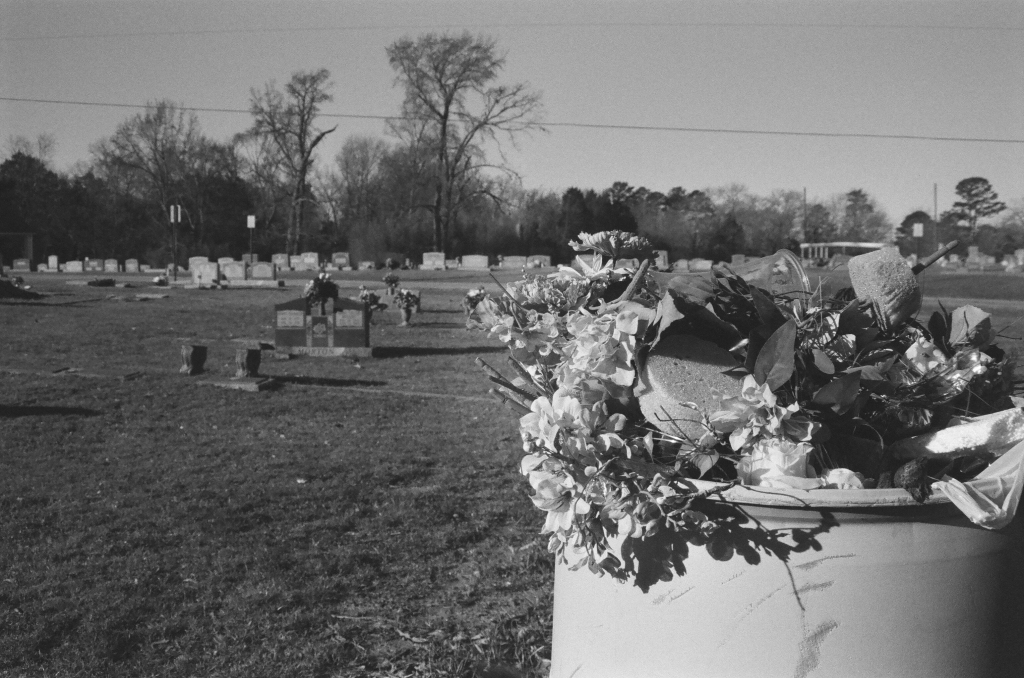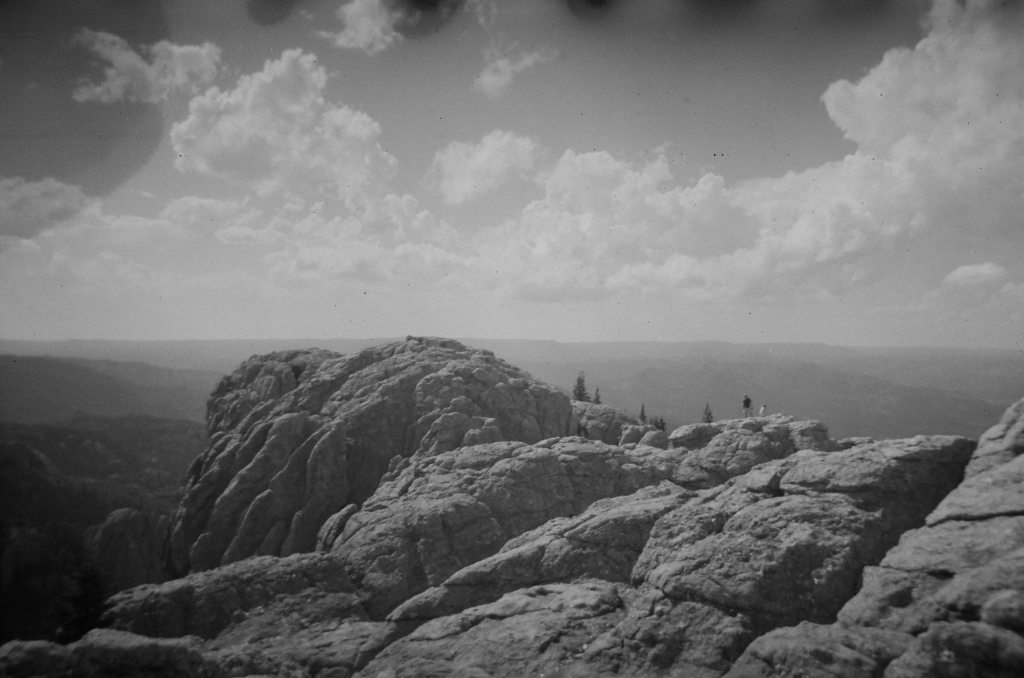We are back on the road because nothing lasts forever. Not our time at home. Not our dwindling bank account. Not our hibernation period. We left a week ago, the road before us our most ambitious yet– to get from Saratoga Springs, NY to Chico, CA in one week, in one piece, and be ready to start a four month tour upon landing. The days were a blur, but here I am, sitting in a public library in Chico, body and soul together, preparing to play a show in a couple of hours. Preparing for the inevitable feeling of the road, that every moment is fleeting, that nothing lasts, that being in the moment is the only moment or I’ll miss it.
Our first night on the cross country trek, we stopped for Mexican food and a sleep at our friend Ann’s house. Her Someone, Tom, passed last July. Tom, who was also someone to me, who leaves a cavernous space in his wake. It’s a space as big as he was– tall and able and equal parts intimidating and softy. No, I take that back. He was much more the latter. While I’ve been grieving his absence from my own home, stepping into his home– now only Ann’s– rippled my insides with a new strangeness. The grief, yes. But also, the inexplicable feeling of having forgotten to put something on my to do list. Every moment in the space gives me the chronic time loop of remembering he is not there. The feeling of missing something, then wondering what it is, then remembering he is gone, then pushing it from my mind, then feeling something missing… It’s a very small dose of what Ann must go through, daily confronted with his clothes, his coffee mugs, his car in the garage.
So, she is in the process of clearing out his things. This works differently for different people, as I understand it. Some rid themselves immediately of their loved one’s things. Others go years before– or never– parting with the pieces and remnants of a life left behind.
There isn’t a right way, but Ann is intent to land somewhere in the middle. She’s agreeing to be in grief, but also making pacts that she will not hold on to everything forever. Except when she opens her cabinets in the kitchen and wonders how she could possibly part with the pasta bowls. Because the pasta bowls, while they are relatively useless and one of them is decidedly cracked, are part of Tommy Tuesday– the day of the week in which Tom would cook dinner when Ann had to work late. Never one to do something halfway, he’d decided that for an evening of pasta, he and Ann must eat out of proper dishware. It isn’t just the memory of Tommy Tuesdays Ann would be throwing away. It’s the memory of Tom able to cook, able to move– just before Tom was too sick to do anything at all. Keeping the pasta bowls isn’t going to bring Tom back. But maybe throwing them away is to throw away what came before. Maybe throwing them away takes away everything but the brutal days that came after the pasta bowls.
Ann knows all of this. She has self awareness for days. She can conjugate her feelings with incredible accuracy, arriving at the proper “I should” solution to her grief. She knows that throwing out the bowls she’s never going to use isn’t going to throw away Tom or her memories or a life spent working on love. In very present time, she is doing the practical work for her mother, clearing out her father’s things as they move her mom in a downsizing effort. She grows frustrated with the old greeting cards, the receipts, the tchotchkes, the midway projects. It’s a clear path from a life shared to a clean slate she can see for her mother.
And yet.
The pasta bowls remain in Ann’s cupboard, too. Chipped. Empty. Metaphorical. Infuriatingly metaphorical.
I can see a clear path for Ann, too. Of course I can. It is not my house. Everyone else’s problems are always much simpler to solve than my own. My Someone attempts it, too.
“I know some people take a photo of the things that they want to remember and then get rid of them,” he tells Ann as we stare at the open cupboard.
“I know, I know,” she says. She’s already considered it. We all always already know the answer.
And yet.
I remember the strange things I took from my Aunt Tammy’s home a couple of years ago after her passing– a yellow silk scarf, a purse, a wooden yoga dog statue, sweaters, Moon Tarot cards, a kitchen bowl. I’ve since repurposed my grief, in small pieces, back out to local thrift stores. Nothing lasts forever. Not even the recollection of why I took these things to begin with. It’s a too-ready impulse to cling to what is left, to draw to us a smell or something tactile in hopes of rustling up a memory close enough to the person themselves that may just conjure them. And in this futile conjuring, it may even briefly alleviate the unending loop of losing them again and again as the minutes drag further from their departure of your timeline. A pasta bowl is a short respite from the aftermath of anger, despair, heartbreak, sadness– and simultaneously the reminder of these same emotions.
We preserve our people through their things, creating museums in our homes. Eventually, if we do not continue to live through these things back into our home again– if we do not repurpose them or lighten our load, the museum takes over, and we find ourselves moving around these items carefully. They become relics. The space becomes cavernous, cold, preciously preserved. Perfectly unlived at the exact moment our loved ones stopped living.
Ann is not there. This is a fresh wound. But she wants to ensure that she doesn’t get there, seeing a fork of a potential future in her mother’s home. She’s taking one room a month. She started with the laundry room. Then the hall closet. It’s almost the end of March. The kitchen cupboards open. Then close again. The pasta bowls remain.

To know we are not meant to carry it all, that we are not meant to keep anything forever, one must only look to the things we are trying desperately to save. I was at a birthday party last month on the Upper West Side in a prewar apartment when a couple, one half originally from France, began talking about the impressive petroglyphs found in some caves in the south of France.
“And you can really see them?” someone interjected.
“Well, they are facsimiles,” the woman replied, “The air everyone was breathing on the originals was ruining them.”
Everyone carried on, listening, then switched topics. I couldn’t get the idea out of my head. When we returned home the following evening, I stayed up in bed looking for the facsimile caves on my phone. Sure enough, I found that if one would go to these caves, you would not in fact enter into the original caves, but an exact replica kilometers above them. And they were, in fact, constructed not because of graffiti or theft, but because the CO2 from human breath was wearing away the ancient drawings. The cave was shut down some time in the early 90’s, and we’ve been accepting the facsimiles as the real thing ever since, in some kind of theatrical suspension of disbelief agreement for the sake of preservation. The reconstructed experience is near perfectly replicated in structure, light, temperature, and even humidity.
This means that our very breath, the thing that is keeping us alive, is the same thing that is killing our connection to our ancestors, our history, our tactile memories. By simply living, we are tearing down where we have been, eating the breadcrumbs of our existence.
So, we took a picture, and placed it on top.
For the love of everything, what is it for? If we cannot look at it anymore, if we seal it all away, who are we saving it for? Will the next generation build a cavern on top of the cavern on top of the ancient cavern to show the progress, to memorialize us? Will they care? Or will they put it all in a box with the pasta bowls and be done with it?
We cannot save anything, let alone everything. If we are to live our own lives fully, to the end, it is impossible.
And yet.
I believe I’d like to see those facsimiles someday. They sound a little like the incarnation of starting again.

And maybe it looks like this– that these memorials we host around us also exist within us. I have at least three pasta bowls of hurt stored within me. Last year, I declared that I would forgive my father. I do not know what that means, but the work seemed to start with saying it aloud. I open the cupboard, I look at the pasta bowl, I close the cupboard. I haven’t been ready. Sometimes I move it to a different shelf and move it back again. I try adding more pasta bowls. I try ignoring them. I try justifying their presence– I have a right to this story. I have a right to keep these memories: as fuel, as identity, as a link to what was true.
And yet.
Nothing can last forever. Even God’s anger, I’ve read, has a limit. Probably mine does, too.
If I keep my anger, if I choose not to forgive, I will have to work around these pasta bowls forever. I will have to build new shelves instead of clearing the space that I have. I may even have to close up a whole room within me and build a new one on top. It’s an incredible amount of emotional labor to memorialize pain, and seems only to create more heartache. I know, practically, that by releasing these pasta bowls that I will not change history, I will not change the truth of my story, I will not change my identity– and that forgiveness will provide its own fuel. I am beginning to see the clear path.
I am contorting less around them. I have maybe even placed them into a box. I’m feeling better, and it is not contingent on writing a letter to my father or demanding an apology. It has never done any good before– he has never returned with the answers I need, or answered at all. I could just as soon speak to his gravestone one day and reap the same response. Whether or not I keep my pasta bowls means nothing to the dead, or in this case the living dead.
It is solely my shelf space, my cavern. I think I may continue to breathe– deep breaths. I suspect that between breathing and living my life fully, intentionally, those old stories will fade from the walls. The walls within me will remain. I wonder what I’ll do with all of that luxurious space.
I love this ending. Because for me when we are FINALLY ready to clear the space we ALLOW growth and change. Memories are for a life time we can’t escape them….they’ve been given to us good or bad…..we however can rearrange and repurpose them. In other words take control.